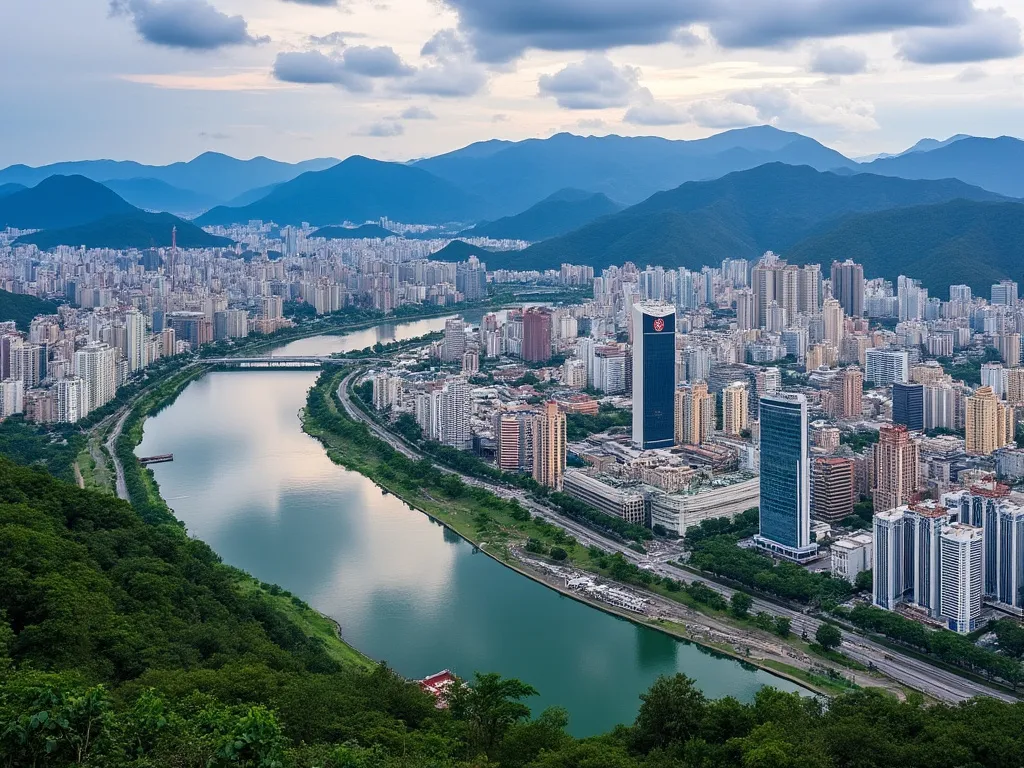
Pyongyang is the capital and largest city of North Korea, located on the Taedong River. The city has a rich history dating back to the Neolithic era, and it has been an important center of politics, culture, and trade for centuries. Today, Pyongyang is a modern city with a blend of traditional and Soviet-style architecture, known for its grand monuments, public squares, and well-organized layout.
Pyongyang Information
| Country | 🇰🇵 North Korea |
| City Population | 2,870,000 |
| City Coordinates | 39.0392° N, 125.7625° E |
| City Area | 2,113 km² |
| Climate | Humid continental |
| Language | Korean |
| Currency | North Korean won |
| Time zone | Pyongyang Time (UTC+9) |
| Proximity to other major cities | Seoul, South Korea (215 km), Beijing, China (850 km), Tokyo, Japan (1,070 km) |
Historical Background of Pyongyang
Pyongyang has a long and complex history, with various periods of rule by different dynasties and empires. The city was first settled in the 4th century BC, and it became a major center of Buddhism during the Goguryeo period. In the 14th century, Pyongyang became the capital of the Joseon Dynasty, which ruled Korea for nearly 500 years. In 1948, Pyongyang became the capital of North Korea, and it has remained so to this day.
Geographical Location of Pyongyang
Pyongyang is located in the western part of North Korea, on the Taedong River. The city is situated in a valley surrounded by mountains, and it has a humid continental climate with hot summers and cold winters. Pyongyang is an important transportation hub, with major roads and railways connecting it to other parts of the country and to China.
Cultural Significance of Pyongyang
Pyongyang is a city with a rich cultural heritage, known for its traditional Korean architecture, public monuments, and vibrant cultural scene. The city is home to many museums, galleries, and performance venues, including the Grand People's Study House, the Pyongyang Art Gallery, and the East Pyongyang Grand Theatre. Pyongyang is also known for its festivals, including the Pyongyang Spring Festival and the Pyongyang Autumn Festival.
Economic Importance of Pyongyang
Pyongyang is the economic hub of North Korea, with a diverse range of industries including manufacturing, textiles, and construction. The city is home to many major companies and institutions, including the Pyongyang Tobacco Factory, the Pyongyang Textile Factory, and the North Korean State Bank. Pyongyang is also an important center for trade, with major ports on the Taedong River and connections to other parts of the country and to China.
Interesting Facts About Pyongyang
- Pyongyang is home to the world's largest sports stadium, the Rungrado 1st of May Stadium.
- The city has a unique addressing system, with building numbers replaced by descriptive names.
- Pyongyang is known for its green spaces, with many parks and gardens throughout the city.
Tourist Attractions in Pyongyang
- The Grand People's Study House, a massive library and cultural center.
- The Victorious Fatherland Liberation War Museum, which tells the story of North Korea's military history.
- The Pyongyang Metro, a beautifully decorated and efficient subway system.
Conclusion on Pyongyang
Pyongyang is a fascinating and complex city, with a rich history, culture, and natural beauty. From its grand monuments to its vibrant cultural scene, Pyongyang is a city that has something to offer for every visitor. Whether you are interested in history, politics, or simply want to experience the unique culture of North Korea, Pyongyang is a destination that is sure to captivate and inspire.
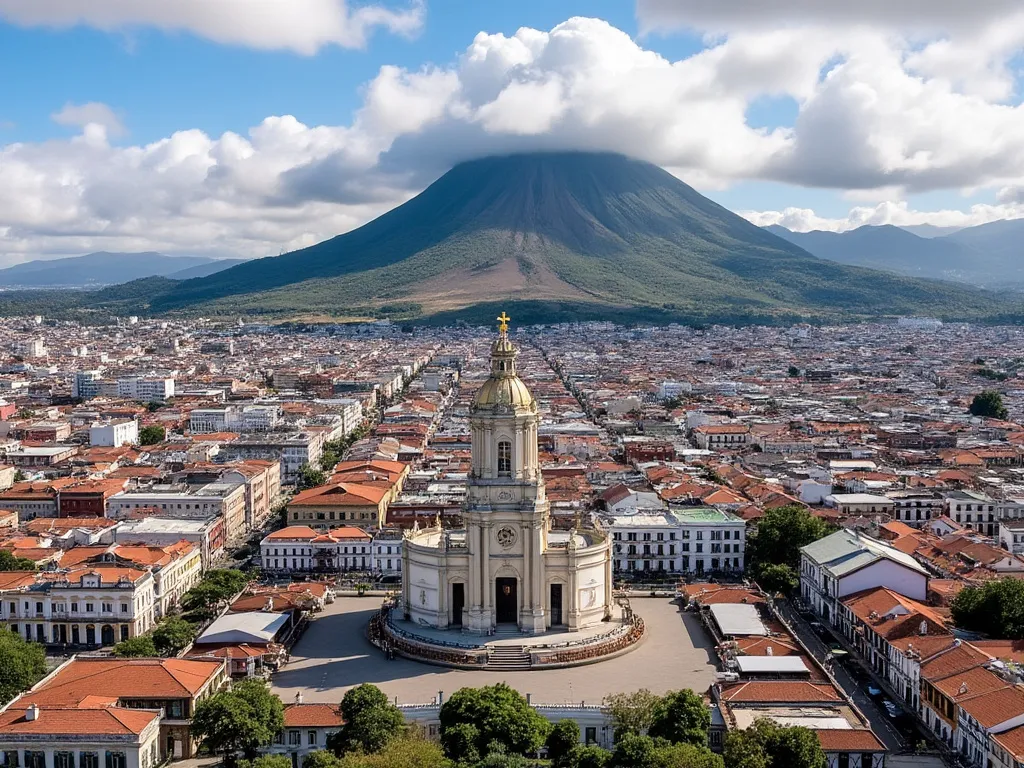 Quito
Quito
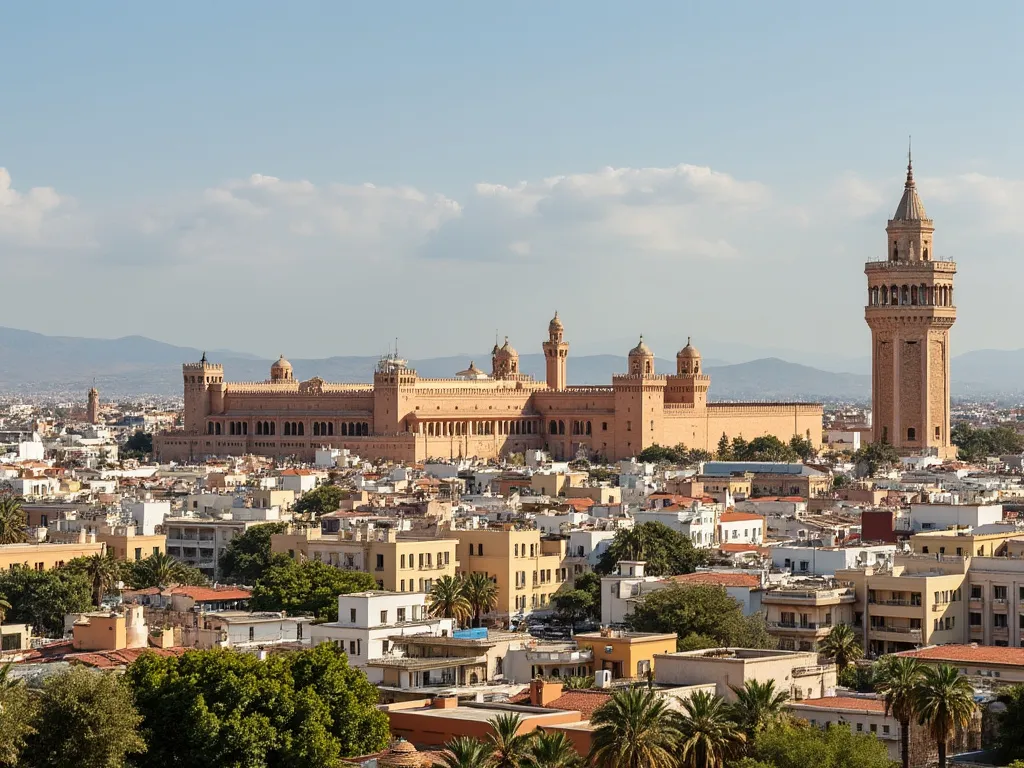 Rabat
Rabat
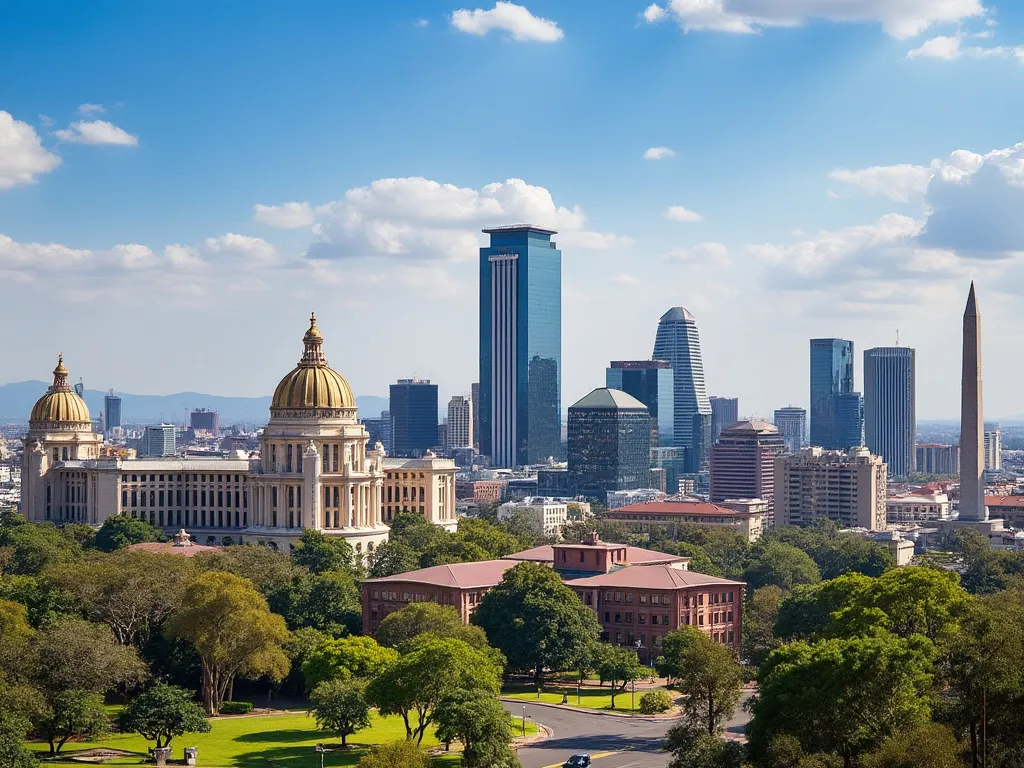 Pretoria
Pretoria
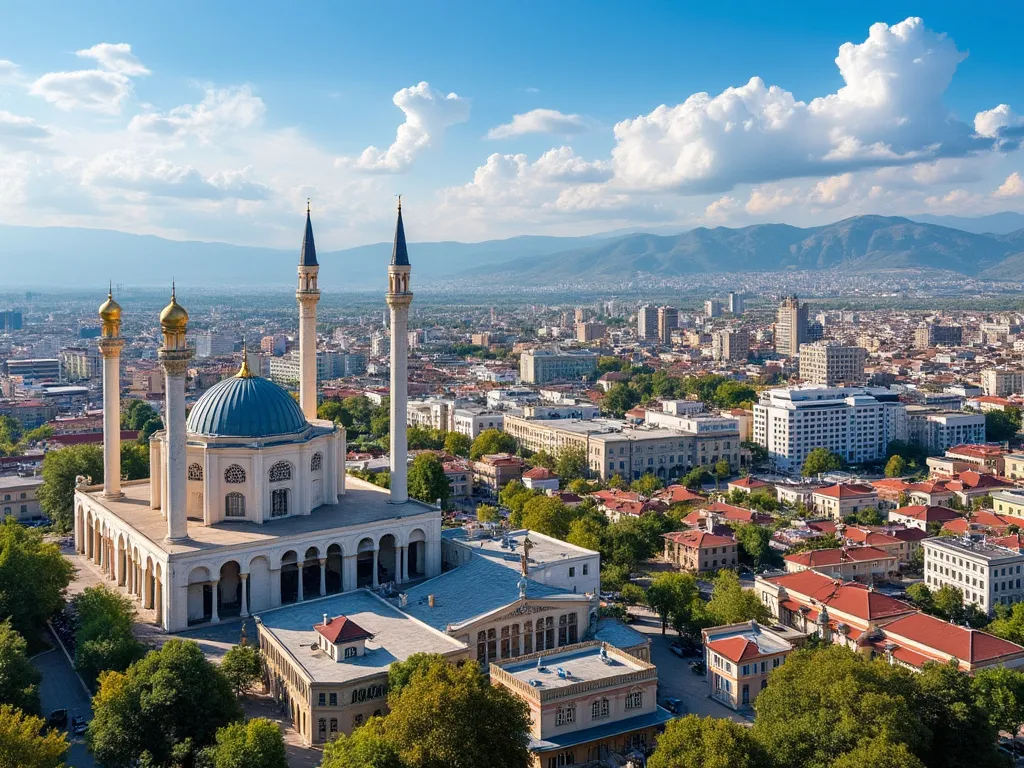 Pristina
Pristina